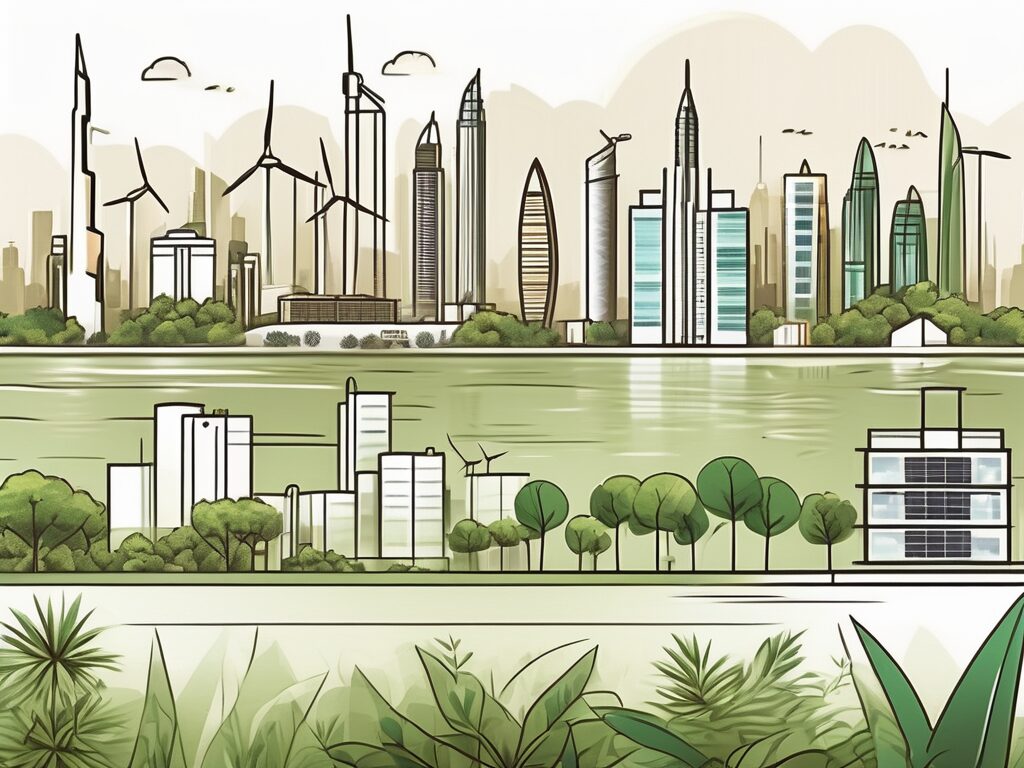Dubai, a city known for its towering skyscrapers and bustling markets, is making strides in another area that might surprise you: environmental education. As the city continues to grow and develop, there’s a growing recognition of the need to educate its residents about the importance of sustainability and environmental conservation. Here, we’ll delve into six key points about environmental education in Dubai, from its inception to its future prospects.
1. The Genesis of Environmental Education in Dubai
The concept of environmental education in Dubai is not a recent development. It has its roots in the late 20th century when the city began to experience rapid urbanisation. This brought about a slew of environmental challenges, such as air pollution and waste management, which necessitated a shift in mindset towards sustainability.
As a result, the government of Dubai started to integrate environmental education into the public school curriculum. This was done with the aim of fostering a generation of environmentally conscious citizens who would contribute to the city’s sustainable development goals. It’s akin to planting a seed and nurturing it to grow into a tree, with the tree in this case being a sustainable future for Dubai.
2. The Role of Government and Non-Governmental Organisations (NGOs)
The government of Dubai, particularly the Ministry of Climate Change and Environment, has played a pivotal role in promoting environmental education. They’ve implemented various initiatives, such as the ‘Sustainable Schools’ programme, which encourages schools to adopt environmentally friendly practices.
However, it’s not just the government that’s championing this cause. Several NGOs, like the Emirates Environmental Group, have also stepped up to the plate. They organise workshops, seminars, and competitions to raise awareness about environmental issues, much like a coach rallying a team to victory. Together, the government and NGOs form a formidable team in the fight for environmental conservation.
3. The Integration of Environmental Education in Schools
Environmental education in Dubai is not confined to a single subject or class. Instead, it’s woven into the fabric of the school curriculum. From science to social studies, students learn about environmental issues and sustainability in a variety of contexts.
For instance, in science classes, students might learn about the impact of human activities on biodiversity. In social studies, they might explore the socio-economic implications of climate change. It’s like a jigsaw puzzle, with each subject contributing a piece to the overall picture of environmental conservation.
4. The Use of Innovative Teaching Methods
Environmental education in Dubai isn’t just about textbooks and lectures. Schools are employing innovative teaching methods to make learning about the environment engaging and fun. This includes field trips to nature reserves, hands-on experiments, and project-based learning.
For example, students might be tasked with designing a sustainable city, complete with renewable energy sources and waste management systems. This not only fosters creativity but also allows students to apply what they’ve learned in a practical context, much like a chef using their culinary skills to create a delicious dish.
5. The Impact of Environmental Education
The impact of environmental education in Dubai is twofold. On an individual level, it equips students with the knowledge and skills to make environmentally friendly choices in their daily lives. On a larger scale, it cultivates a society that values and prioritises environmental conservation.
Moreover, environmental education has the potential to influence policy decisions. As more and more people become aware of environmental issues, there’s likely to be increased public support for policies that promote sustainability. It’s a bit like a snowball effect, with the snowball in this case being environmental conservation.
6. The Future of Environmental Education in Dubai
Looking ahead, the future of environmental education in Dubai seems promising. With the government’s commitment to sustainability and the increasing involvement of NGOs, environmental education is likely to continue to flourish.
Moreover, as technology continues to advance, there’s potential for even more innovative teaching methods. Imagine virtual reality field trips to rainforests or interactive online games that teach students about recycling. The possibilities are as vast as the ocean, and just as exciting.
In conclusion, environmental education in Dubai is more than just a trend. It’s a crucial component of the city’s efforts to achieve sustainable development. By educating the younger generation about the importance of environmental conservation, Dubai is planting the seeds for a greener, more sustainable future.
Join the Movement: Empower Your Teaching Career with IPGCE
As Dubai paves the way for a sustainable future through environmental education, educators have a unique opportunity to lead this transformative movement. IPGCE recognizes the barriers teachers face and offers a comprehensive solution. Enhance your qualifications, connect with a global network, and gain a deep understanding of international curricula with our International Postgraduate Certificate in Education. Embrace the flexibility of online study and join the UK’s #1 Teacher Training Course to not only contribute to a greener world but also to significantly advance your teaching career. Join the IPGCE program today and become part of the change that Dubai—and the world—needs.

